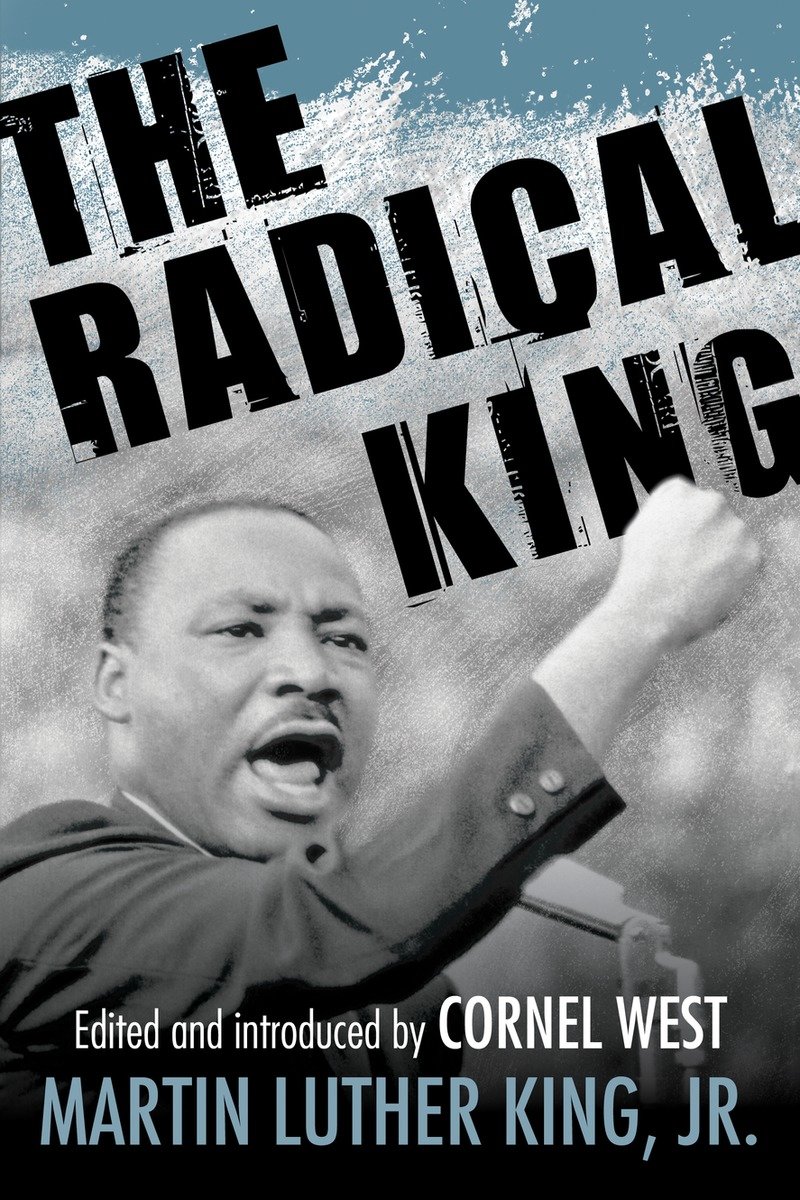Description
A revealing collection that restores Dr. King as being every bit as radical as Malcolm X“The radical King was a democratic socialist who sided with poor and working people in the class struggle taking place in capitalist societies. . . . The response of the radical King to our catastrophic moment can be put in one word: revolution—a revolution in our priorities, a reevaluation of our values, a reinvigoration of our public life, and a fundamental transformation of our way of thinking and living that promotes a transfer of power from oligarchs and plutocrats to everyday people and ordinary citizens. . . . Could it be that we know so little of the radical King because such courage defies our market-driven world?” —Cornel West, from the IntroductionEvery year, Dr. Martin Luther King, Jr., is celebrated as one of the greatest orators in US history, an ambassador for nonviolence who became perhaps the most recognizable leader of the civil rights movement. But after more than forty years, few people appreciate how truly radical he was. Arranged thematically in four parts, The Radical King includes twenty-three selections, curated and introduced by Dr. Cornel West, that illustrate King’s revolutionary vision, underscoring his identification with the poor, his unapologetic opposition to the Vietnam War, and his crusade against global imperialism. As West writes, “Although much of America did not know the radical King—and too few know today—the FBI and US government did. They called him ‘the most dangerous man in America.’ . . . This book unearths a radical King that we can no longer sanitize.”
Additional information
| Weight | 0.49 kg |
|---|---|
| Dimensions | 2.29 × 15.24 × 4.09 cm |
| book-author1 | |
| Format | Paperback |
| Language | |
| Pages | 320 |
| Publisher | |
| Year Published | 2016-1-12 |
| Imprint | |
| Publication City/Country | USA |
| ISBN 10 | 0807034525 |
| About The Author | Dr. Martin Luther King, Jr. (1929–1968), Nobel Peace Prize laureate and architect of the nonviolent civil rights movement, was among the twentieth century’s most influential figures. One of the greatest orators in US history, King also authored several books, including Stride Toward Freedom, Where Do We Go from Here, and Why We Can’t Wait.King was assassinated in Memphis, Tennessee, on April 4, 1968. Cornel West has been profoundly influenced by Dr. Martin Luther King, Jr. A professor at Union Theological Seminary, Dr. West has also taught at Yale, Harvard, and Princeton. The recipient of more than twenty honorary degrees, he has written many important books, including the best-selling Race Matters and Democracy Matters. He lives in New York City. |
“This useful collection takes King from the front lines of Southern segregation to a national movement for economic equality to an international condemnation of imperialism and armed intervention.” —Kirkus Reviews“King’s skills as a preacher and rhetorician are amply in evidence, as is his profound empathy with others.” —Publishers Weekly |
|
| Table Of Content | Introduction: The Radical King We Don’t KnowPART ONE: Radical Love IntroductionONE: The Violence of Desperate MenTWO: Palm Sunday Sermon on Mohandas K. GandhiTHREE: Pilgrimage to NonviolenceFOUR: Loving Your EnemiesFIVE: What Is Your Life’s Blueprint?PART TWO: Prophetic Vision: Global Analysis and Local PraxisIntroductionSIX: The World HouseSEVEN: All the Great Religions of the WorldEIGHT: My Jewish Brother!NINE: The Middle East QuestionTEN: Let My People GoELEVEN: Honoring Dr. Du Bois PART THREE: The Revolution of Nonviolent Resistance: Against Empire and White SupremacyIntroductionTWELVE: Letter from Birmingham JailTHIRTEEN: Nonviolence and Social ChangeFOURTEEN: My Talk with Ben BellaFIFTEEN: Jawaharlal Nehru, a Leader in the Long Anti-Colonial StruggleSIXTEEN: Where Do We Go from Here?SEVENTEEN: Black PowerEIGHTEEN: Beyond Vietnam: A Time to Break Silence PART FOUR: Overcoming the Tyranny of Poverty and HatredIntroduction NINETEEN: The Bravest Man I Ever MetTWENTY: The Other AmericaTWENTY-ONE: All Labor Has DignityTWENTY-TWO: The Drum Major InstinctTWENTY-THREE: I’ve Been to the MountaintopAcknowledgmentsNotesIndex |
| Excerpt From Book | “I imagine you already know that I am much more socialistic in my economic theory than capitalistic. . . . [Capitalism] started out with a noble and high motive . . . but like most human systems it fell victim to the very thing it was revolting against.” —Letter to Coretta Scott, July 18, 1952“There is another America, and that other America has a daily ugliness about it that transforms the buoyancy of hope into the fatigue of despair. . . . By the millions, people in the other America find themselves perishing on a lonely island of poverty in the midst of a vast ocean of material prosperity. . . . The great tragedy is that the nation continues in its national policy to ignore the conditions that brought the riots or the rebellions into being. . . . The problem with a riot is that it can always be halted by superior force, so I couldn’t advise that. On the other hand, I couldn’t advise following a path of Martin Luther King just sitting around signing statements, and writing articles condemning the rioters, or engaging in a process of timid supplications for justice. The fact is that freedom is never voluntarily given by the oppressor. It must be demanded by the oppressed—that’s the long, sometimes tragic and turbulent story of history.” —“The Other America,” delivered by Dr. King at the Local 1199’s “Salute to Freedom,” New York City, March 10, 1968 |
| series |
Only logged in customers who have purchased this product may leave a review.






Reviews
There are no reviews yet.